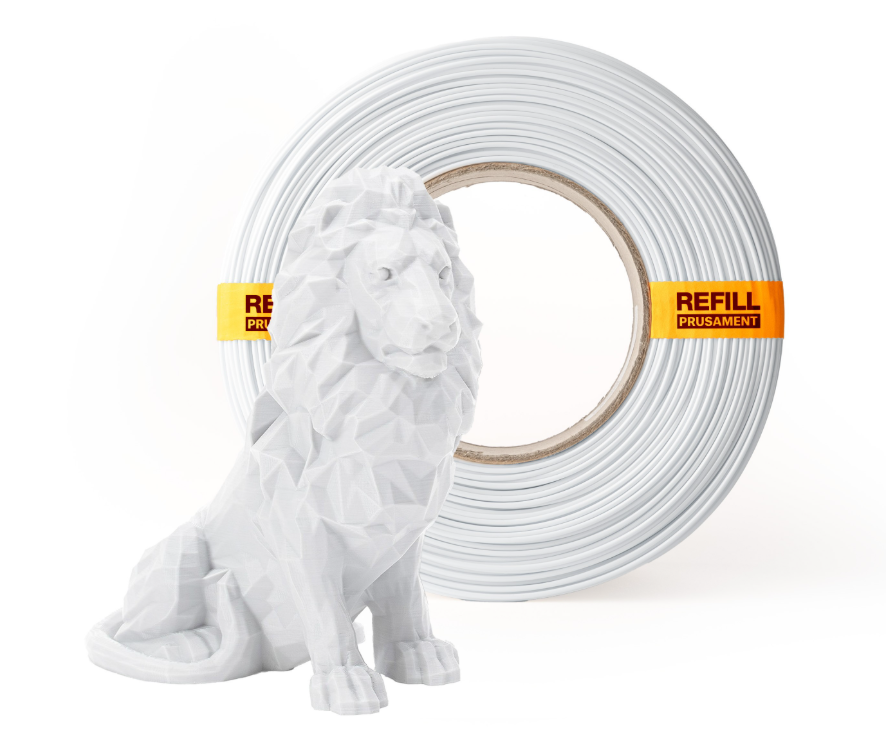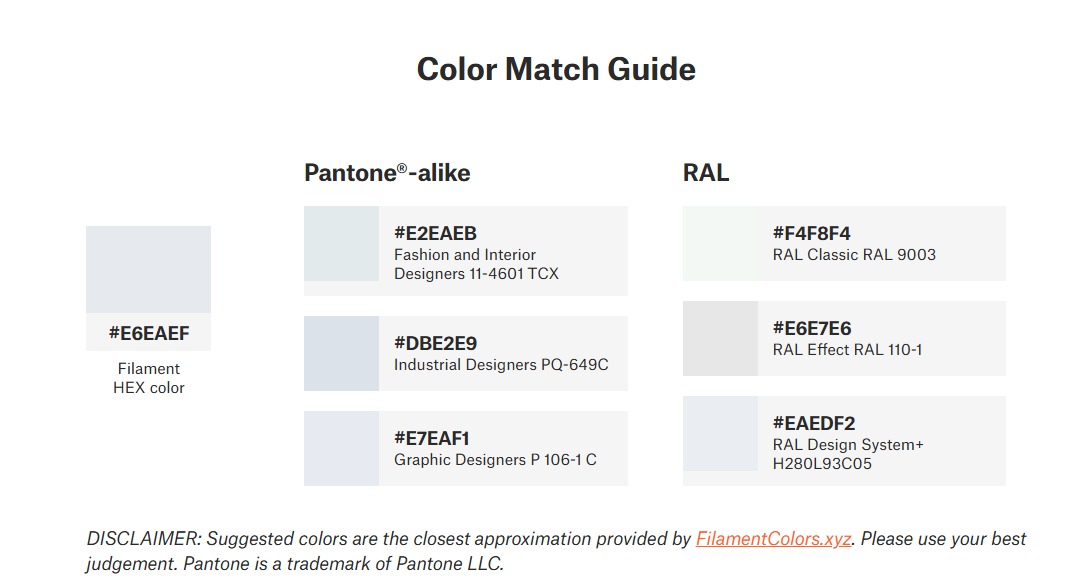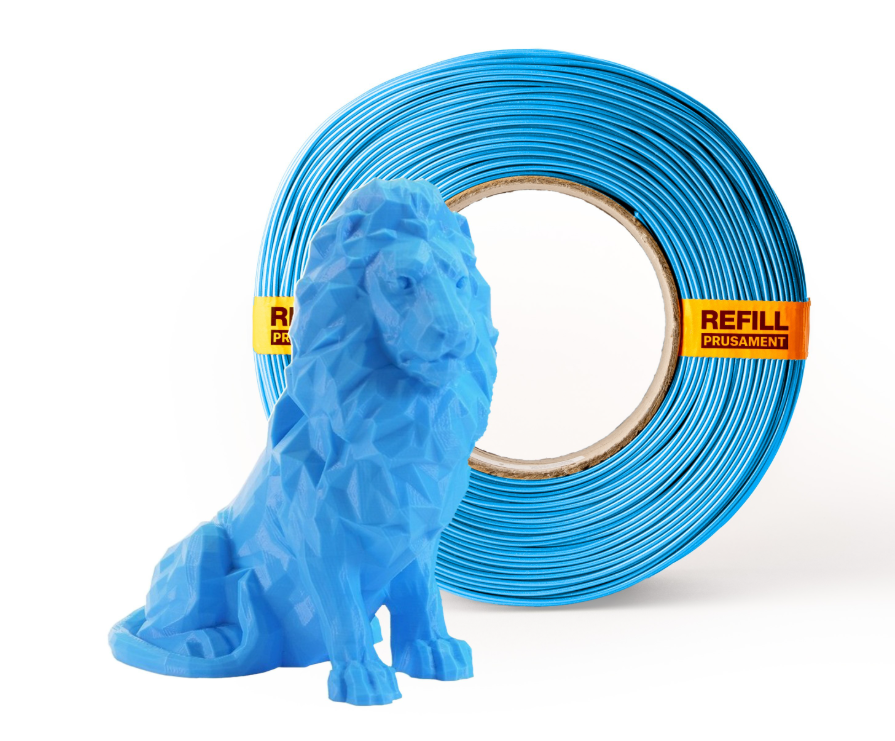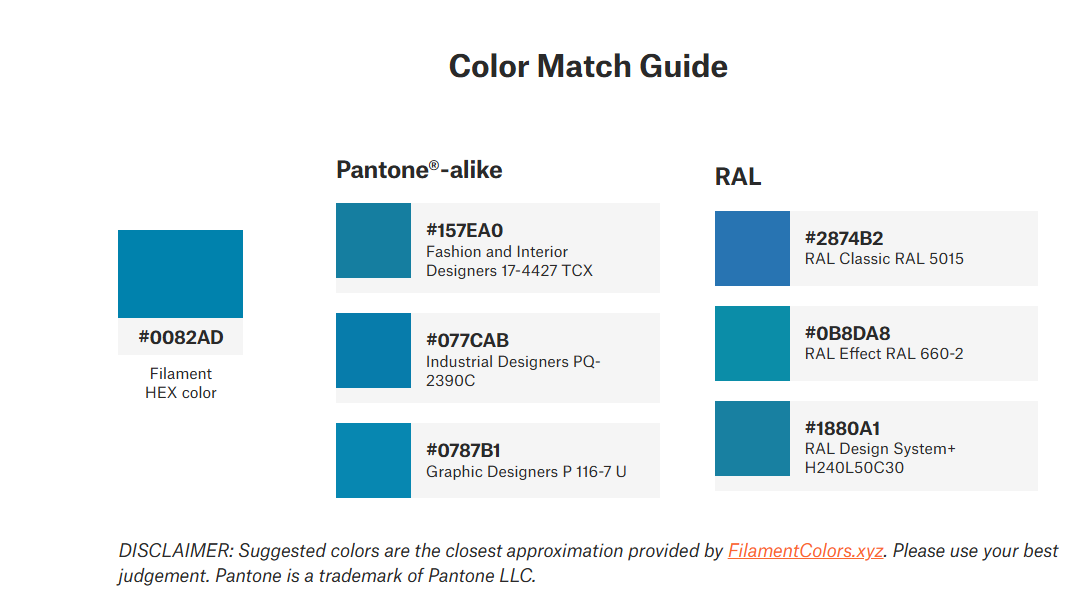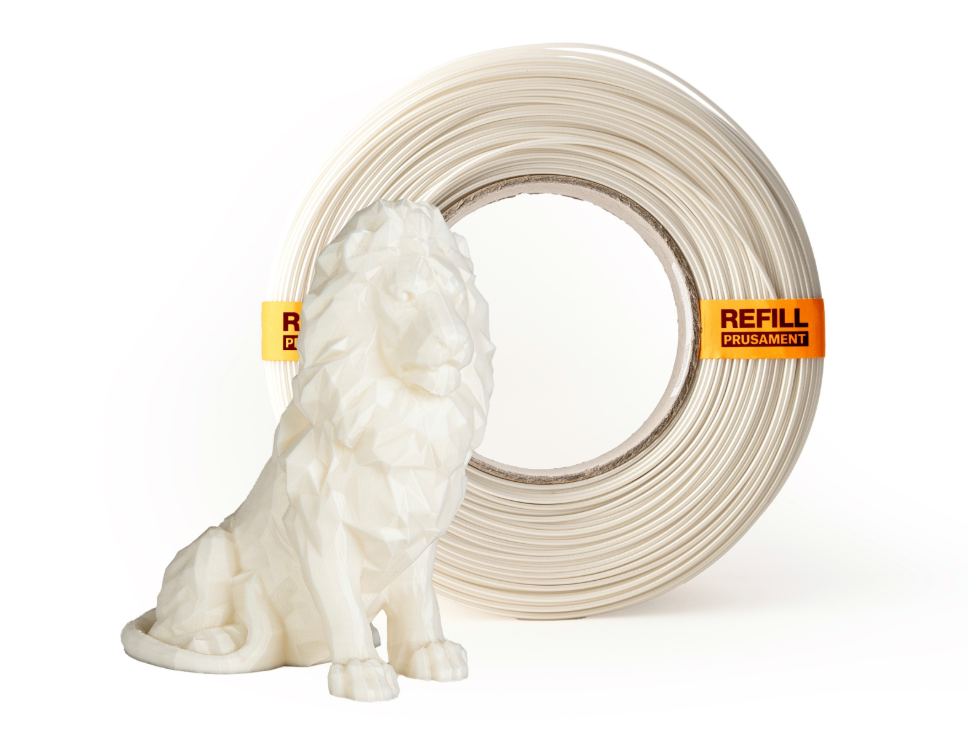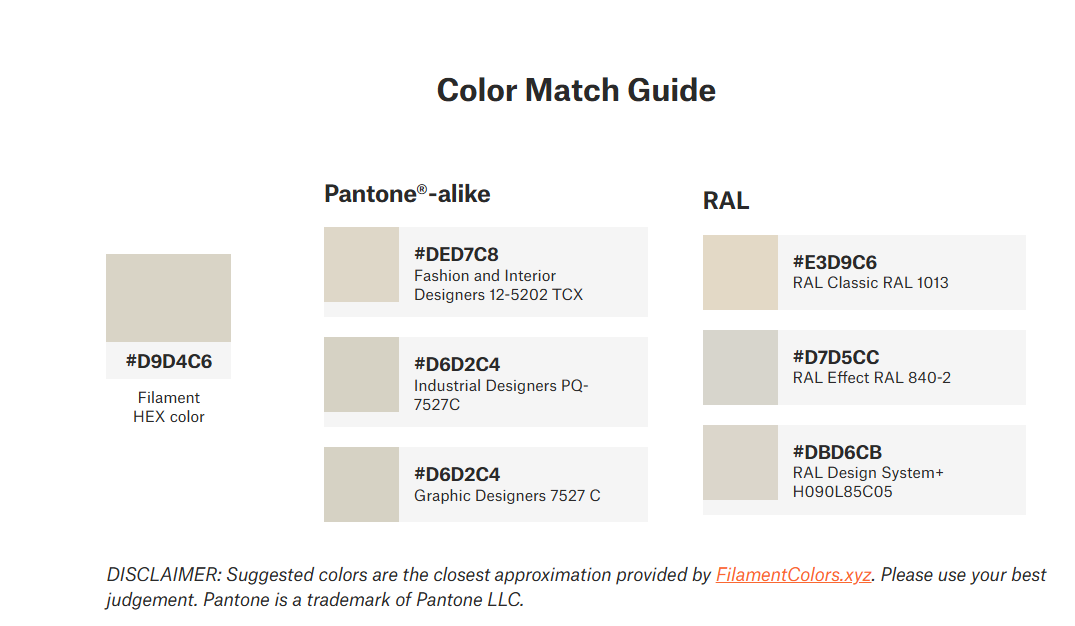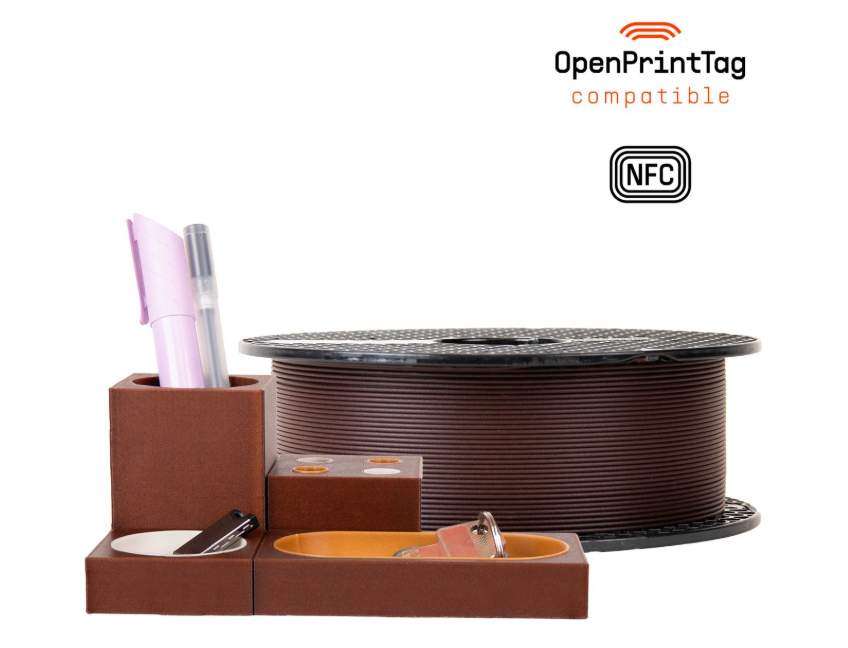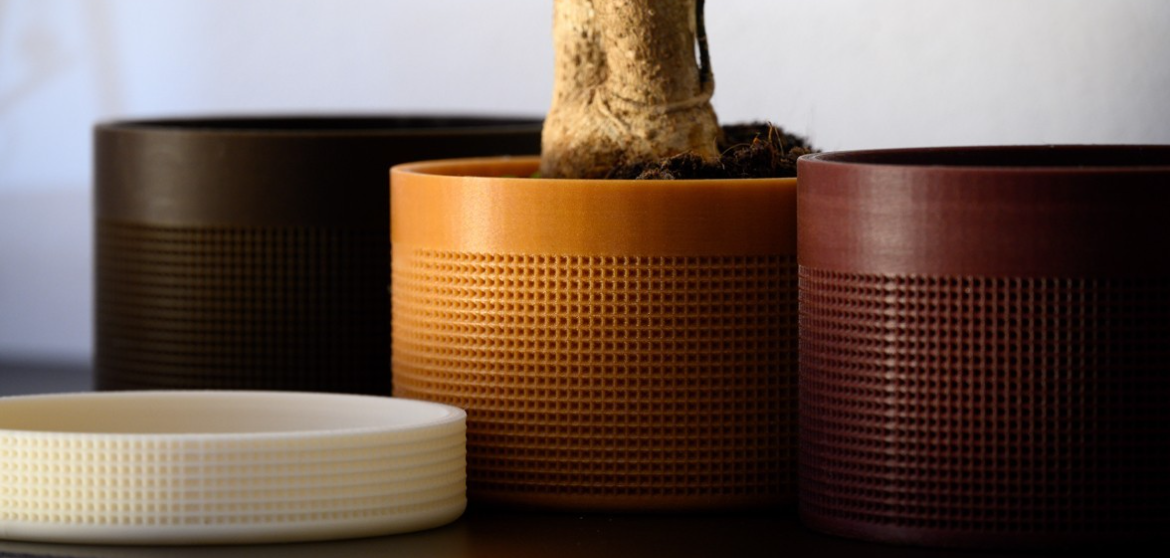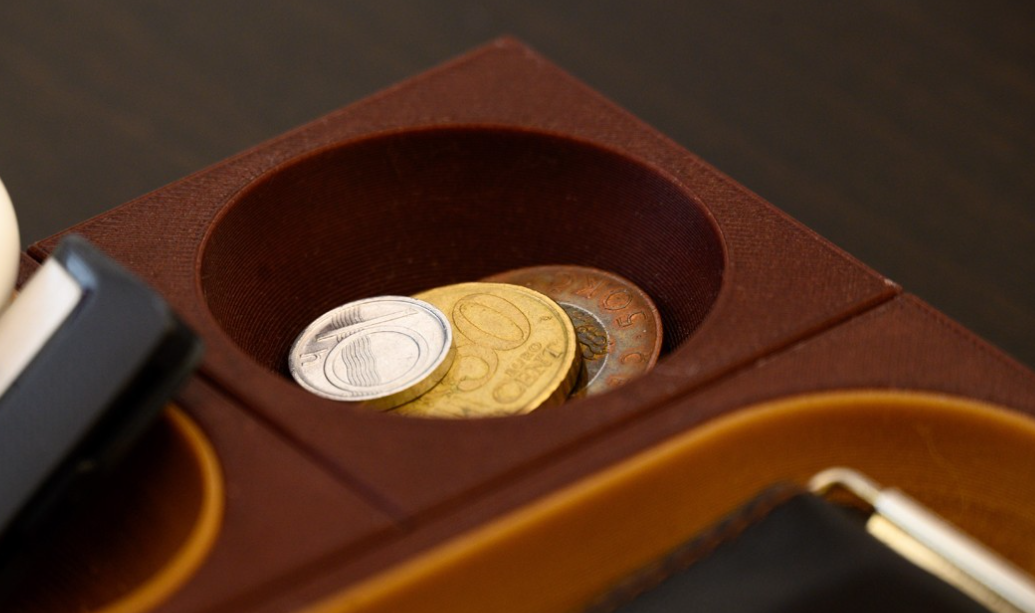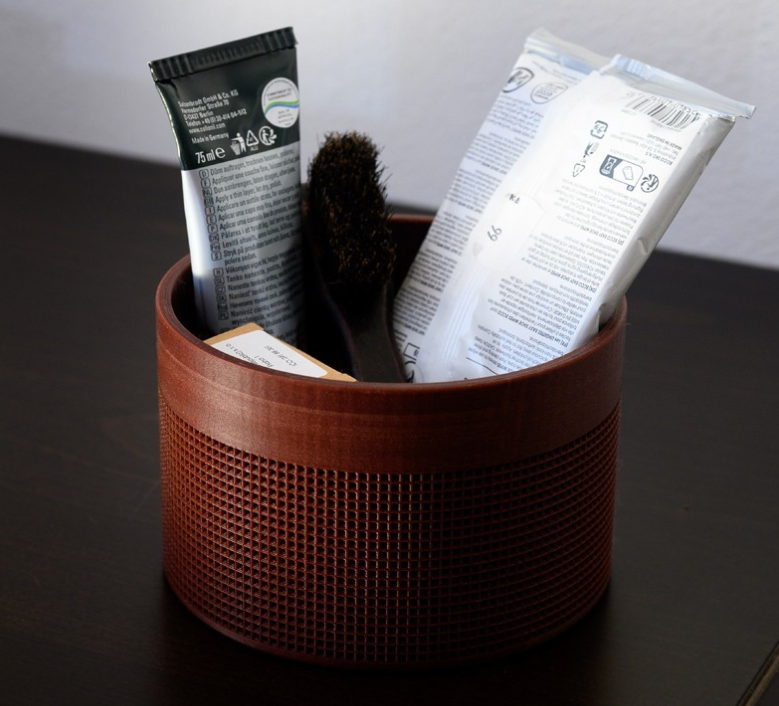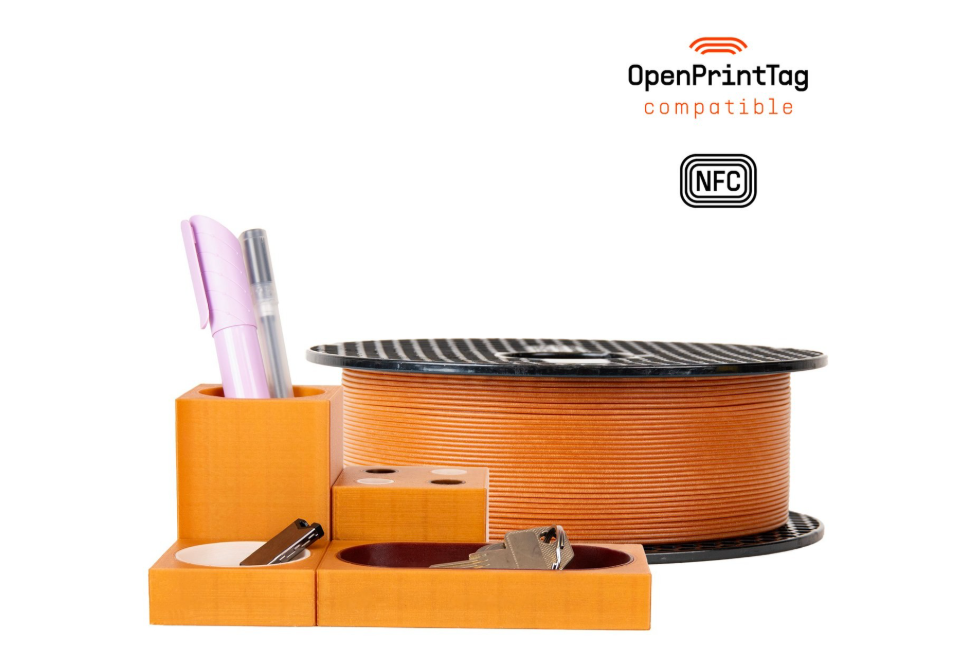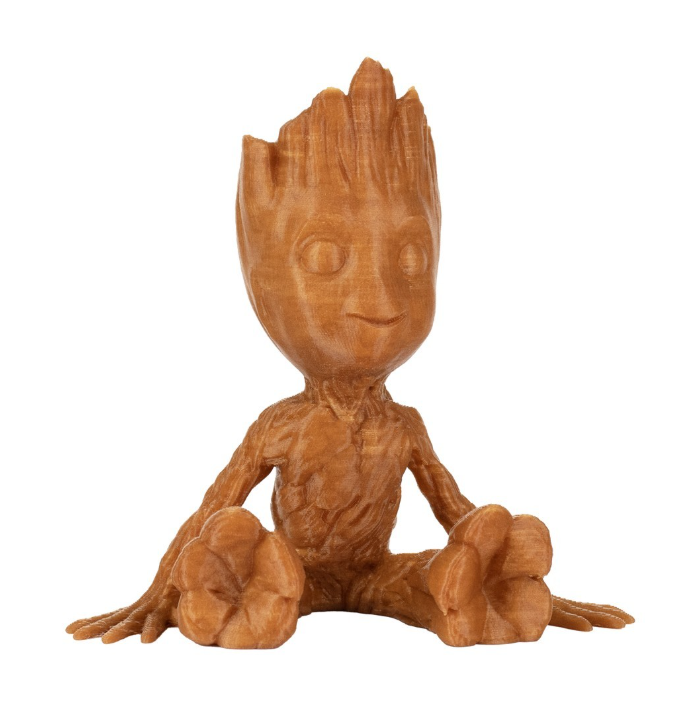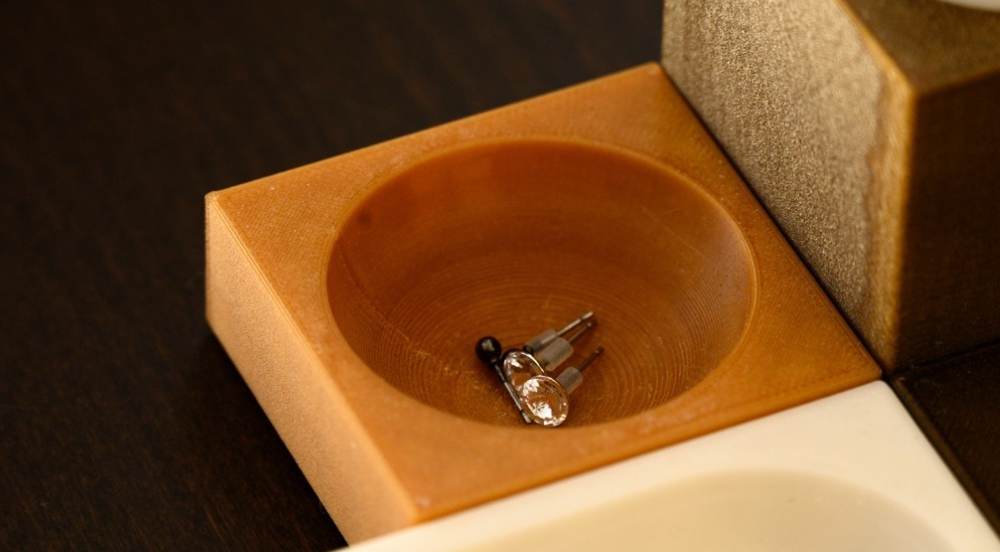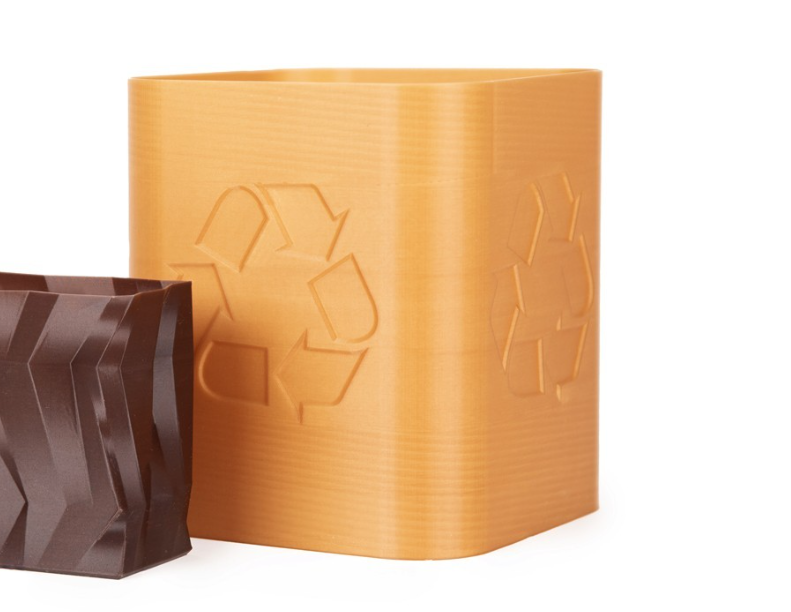 Image 1 of 11
Image 1 of 11

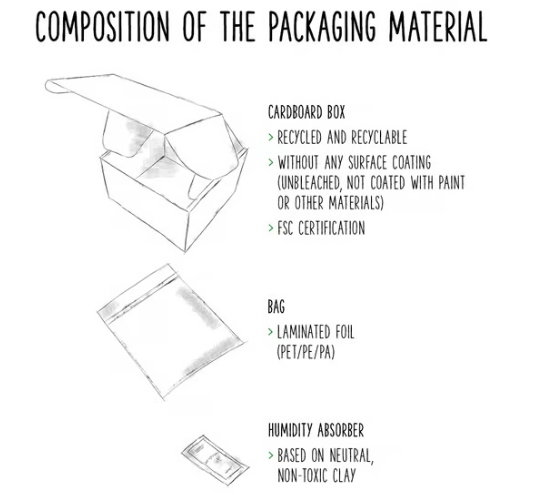 Image 2 of 11
Image 2 of 11

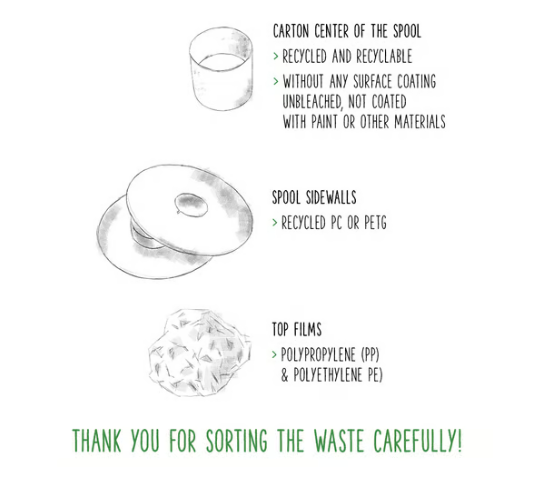 Image 3 of 11
Image 3 of 11

 Image 4 of 11
Image 4 of 11

 Image 5 of 11
Image 5 of 11

 Image 6 of 11
Image 6 of 11

 Image 7 of 11
Image 7 of 11

 Image 8 of 11
Image 8 of 11

 Image 9 of 11
Image 9 of 11

 Image 10 of 11
Image 10 of 11

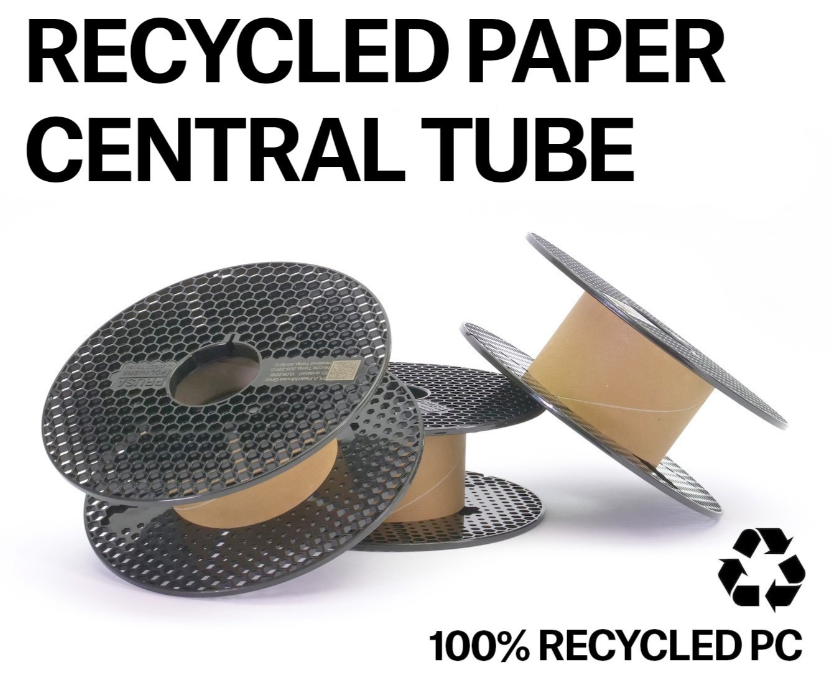 Image 11 of 11
Image 11 of 11












Prusament PLA Recycled 2kg UK STOCK
Prusament PLA Recycled is Prusas own in-house made filament with ±0.05mm manufacturing tolerance. 100 % of the material consists of recycled Prusament PLA materials, so every batch has a different color. You can inspect the parameters of every spool we made at prusament.com.
About Prusament PLA Recycled
Prusament PLA Recycled is their our own in-house filament. 100 % of the material consists of recycled Prusament PLA materials, so every batch has a different color. Overall, PLA is the easiest material to print, it is inexpensive and suitable (not only) for beginners. It is capable of printing detailed models, figures, and quick prototypes that don’t require high mechanical, chemical, or temperature resistance.
PLA is the most widely used filament, known for its great looks and ease of printing. It is an excellent choice for large objects because of its low thermal expansion, which results in minimal warping. At the same time, its low melting temperature makes it suitable for small parts as well. While PLA may not be as tough or durable as some advanced materials, its versatility makes it ideal for a range of applications, including large objects, miniatures, concept models, and prototypes that don’t need to be extremely durable.
Printing Setup
Nozzle 215 °C Heatbed 50-60 °C Recommended Steel Sheet Smooth PEI / Textured / Satin
Basic Attributes
Easy to print
Suitable for prints of any size
Hard
Low warping
Different color with every batch
Brittle
Poor high-temperature resistance
Difficult to sand (hard material, melts easily)
Beginners tips & tricks
Popular among both beginners and advanced users
PLA is the easiest-to-print filament we make. It’s reliable and it doesn’t require any print preparations or difficult post-processing methods. If you’re new to 3D printing, it’s best to start with PLA before using other materials.
Sanding
When post-processing PLA, it’s better to use wet sanding. Without water you’ll quickly start heating the plastic by friction, it will melt locally and deform. Also, without water, the sanding material would clog easily.
Gluing
PLA can be glued with many types of glue. We recommend using superglue for most of the parts. Certain PLA filaments may be also glued using acetone, however, it strongly depends on the various additives and colors used.
Notes
For our recycled filaments, Prusa had its carbon footprint calculated. You can find more about our sustainability activities in their sustainability report.
The 2kg spool won't fit the standard spoolholder, please download and print the 2kg spoolholder.
This Prusament PLA Recycled is made in-house by Prusa Polymers.
1.75 mm filament is manufactured with precision of +- 0.05 mm
Before printing, make sure the surface of heatbed is clean as described in 3D Printing Handbook.
To dry the filament, please follow the instructions in our article.
Technical Data Sheet
https://www.prusa3d.com/file/370534/prusament-pla-recycled-technical-data-sheet.pdf
Safety Data Sheet
https://www.prusa3d.com/file/2364688/prusament-pla-recycled-safety-data-sheet.pdf
Prusament Recycled Life Cycle Assessment
https://www.prusa3d.com/file/456329/prusament-recycled-life-cycle-assessment.pdf
Prusament PLA Recycled is Prusas own in-house made filament with ±0.05mm manufacturing tolerance. 100 % of the material consists of recycled Prusament PLA materials, so every batch has a different color. You can inspect the parameters of every spool we made at prusament.com.
About Prusament PLA Recycled
Prusament PLA Recycled is their our own in-house filament. 100 % of the material consists of recycled Prusament PLA materials, so every batch has a different color. Overall, PLA is the easiest material to print, it is inexpensive and suitable (not only) for beginners. It is capable of printing detailed models, figures, and quick prototypes that don’t require high mechanical, chemical, or temperature resistance.
PLA is the most widely used filament, known for its great looks and ease of printing. It is an excellent choice for large objects because of its low thermal expansion, which results in minimal warping. At the same time, its low melting temperature makes it suitable for small parts as well. While PLA may not be as tough or durable as some advanced materials, its versatility makes it ideal for a range of applications, including large objects, miniatures, concept models, and prototypes that don’t need to be extremely durable.
Printing Setup
Nozzle 215 °C Heatbed 50-60 °C Recommended Steel Sheet Smooth PEI / Textured / Satin
Basic Attributes
Easy to print
Suitable for prints of any size
Hard
Low warping
Different color with every batch
Brittle
Poor high-temperature resistance
Difficult to sand (hard material, melts easily)
Beginners tips & tricks
Popular among both beginners and advanced users
PLA is the easiest-to-print filament we make. It’s reliable and it doesn’t require any print preparations or difficult post-processing methods. If you’re new to 3D printing, it’s best to start with PLA before using other materials.
Sanding
When post-processing PLA, it’s better to use wet sanding. Without water you’ll quickly start heating the plastic by friction, it will melt locally and deform. Also, without water, the sanding material would clog easily.
Gluing
PLA can be glued with many types of glue. We recommend using superglue for most of the parts. Certain PLA filaments may be also glued using acetone, however, it strongly depends on the various additives and colors used.
Notes
For our recycled filaments, Prusa had its carbon footprint calculated. You can find more about our sustainability activities in their sustainability report.
The 2kg spool won't fit the standard spoolholder, please download and print the 2kg spoolholder.
This Prusament PLA Recycled is made in-house by Prusa Polymers.
1.75 mm filament is manufactured with precision of +- 0.05 mm
Before printing, make sure the surface of heatbed is clean as described in 3D Printing Handbook.
To dry the filament, please follow the instructions in our article.
Technical Data Sheet
https://www.prusa3d.com/file/370534/prusament-pla-recycled-technical-data-sheet.pdf
Safety Data Sheet
https://www.prusa3d.com/file/2364688/prusament-pla-recycled-safety-data-sheet.pdf
Prusament Recycled Life Cycle Assessment
https://www.prusa3d.com/file/456329/prusament-recycled-life-cycle-assessment.pdf


